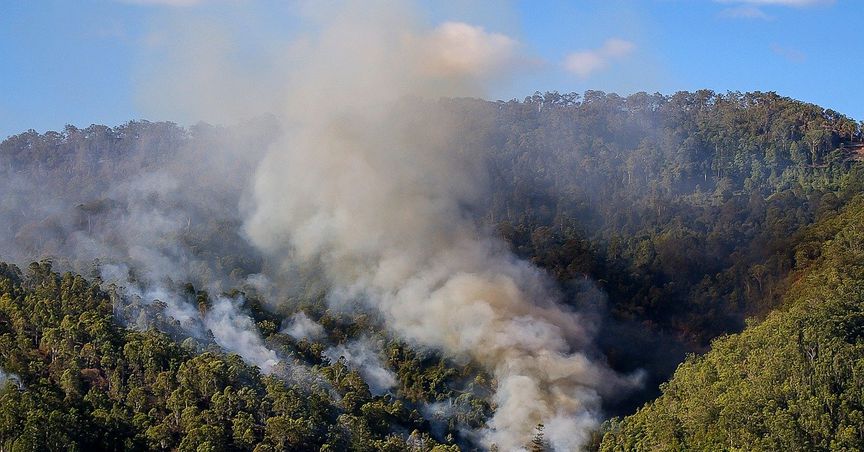Climate change is a natural phenomenon, but humankind has drastically altered the process. Climate change caused by the progressive anthropogenic emissions of greenhouse gases is already affecting natural and human systems and sectors throughout the world and the changes to date may be only inklings of profound changes to come. The devastating bushfires in Australia is a recent example of what could be the consequences of climate change.
Impact on Sectors
From an equity market perspective, stock prices generally get affected by emotional or physical changes caused by climate conditions. In the recent bushfire event, we saw that a lot of companies reported about the damages and operations affected by the bushfire. Bushfires have ravaged large parts of Australia affecting the lives of humans and animals, impacting a lot of Agriculture stocks on the exchange.
Agriculture Businesses
Any uncertain change in climate could impact the operations of Agricultural stocks as the weather plays the dominant role in farm production. Weather is always variable, and farmers have no control over this natural phenomenon. Abnormalities such as drought and associated farm losses are not very frequent, but losses due to short-term climate variability and sudden weather hazards such as flash floods, untimely rains, hailstorms, and severe frost do occur year after year.
Australia’s leading agribusiness, Elders Limited (ASX: ELD) recently provided an update on bushfire impact wherein it stated that it expect that livestock agency commissions and farm supplies sales will be negatively impacted in bushfire impacted regions and due to the Bushfire crisis the company’s various clients have experienced devastating property and livestock losses.
Insurance Sector
Many believe that insurance companies might face damaging consequences, given the status quo that has been witnessing bushfires, drought coupled with lower interest rates. While this could be something that insurance companies would be prepared for, owing to the trend that has been similar in the past few years except for low interest rates.
Lower interest rates have adverse outcomes due to the fact that cover providers have to invest a substantial corpus in the fixed income universe, which provides somewhat safe returns. And, as risk-free rates have come down, globally, insurance companies are likely to produce subdued investment returns.
Recently, Insurance Australia Group Limited (ASX: IAG), provided an update on catastrophic reinsurance program for the calendar year 2020. The group has revamped its reinsurance cover to the tune of up to $10 billion, which stood at $9 billion in the previous calendar year.
Also, IAG provided an update on claim costs related to net natural perils for the FY20 to date period (on 3 January 2020). IAG had received claims of more than 2,800 that were related to bushfires since September 2019, and a majority of these claims were related to residential properties. The group is expecting a natural peril claim costs of around $400 for the half-year ended 31 December 2019 post quota-share. It was noted that overall bushfires would result in net claims costs of around $160 million in HYFY20 (31 December 2019).
Tourism Industry
Those in tourism industries in the fire-affected areas are some of the worst hit by this crisis. Road closures and evacuation protocols have put a huge dent in what is generally the high season for holiday towns in Victoria and NSW. Some who have lost holiday rentals in the fires will have relied on rent as a primary income stream. Airbnb providers throughout both states have been hit by cancellations for the rest of the summer, as the end of the fire risk is unclear. Though third-party service Airbnb provides insurance for damages caused by guests, they do not cover natural disasters.
Ingenia Communities Group (ASX: INA), the owner, operator and developer of quality, affordable Australian seniors living accommodation, recently provided an update on the impact of recent bush fire activity where in reported that two resident owned homes were lost at Ingenia Lifestyle Lake Conjola and the Business across the tourism parks has been impacted as tourists and residents were asked to leave the region.
Holiday makers are also out of pocket, as many cancelled or abandoned their trips to NSW’s South Coast last week after the catastrophic fire warnings were released. The wide scale nature of the cancellations has left rental providers in a difficult position – who should be left to carry the cost of the disaster? While holiday makers are seeking refunds after being forced to cancel due to circumstances outside of their control, hosts will be left heavily out of pocket if they comply. It is a morally dubious situation that is unlikely to leave any winners.
The extent of economic damage caused by natural calamities could have much wider implications on households, including spending decisions, additional debt, and unexpected expenses.
Australia’s stand on Climate Change
Although Australia has been taking measures to control the climate change for quite some time, it has not been able to safeguard itself from the change. World's biggest per capita greenhouse gas emitters, Australia, had aimed a 26-28% reduction in its emissions, under the Paris Climate Agreement.
As per the Australian Prime Minister Scott Morrison, the country’s policies on reducing emissions will allow Australia to be a vibrant and viable economy, as well as a vibrant and sustainable environment.
The question that arises now is that “is Australia doing enough to control the climate change?”
The country is a leading exporter of Coal in the world due to which there has been continuous debate whether it should cut down coal mining as a step toward sustainable future. As the Australian Coal Industry greatly benefits the country economy, the policies have always backed the industry.
This means that, the faith of the coal players is currently in the hands of the Government. If in the future, the Government gets serious about reducing the coal mining, it could seriously impact the industry and the overall economy.



